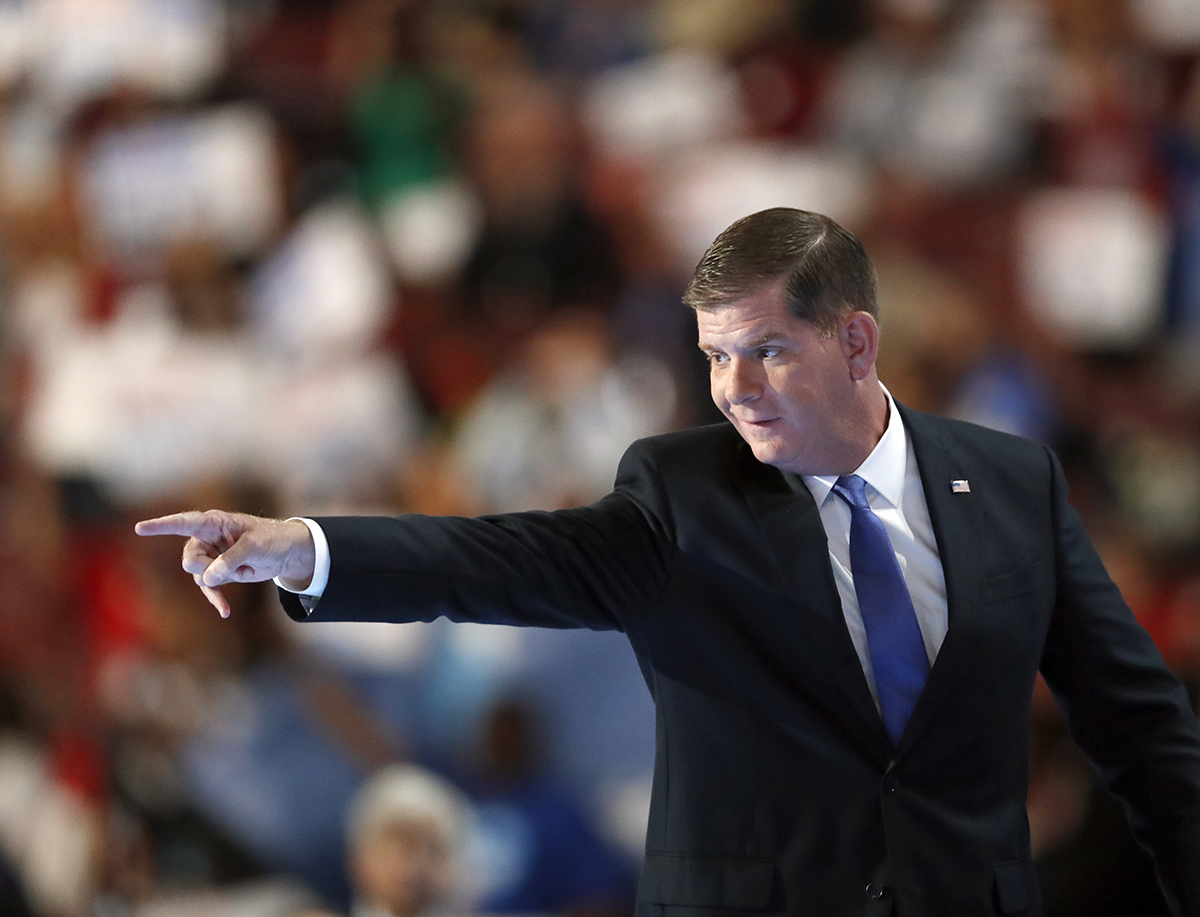How Marty Walsh’s DNC Speech Could Help the Recovery Community

Marty Walsh at the DNC/Photo via AP
Mayor Marty Walsh began his speech at the Democratic National Convention Monday with a simple sentence: “My name is Marty Walsh, and I’m an alcoholic.”
It may only be nine words, but that sentence could make a world of difference for members of the substance abuse recovery community, says Lori McCarthy, director of clinical outreach at Gosnold, a Cape Cod addiction treatment center where Walsh sought help in 1995.
“Someone like Mayor Walsh, who is so openly proud of his recovery, [speaking candidly] not only reaches out to the recovering community,” she says, “but it also gives so much hope to families and individuals that are still suffering the consequences of addiction.”
McCarthy says seeing somebody of Walsh’s prominence acknowledging his past and his road to recovery brings attention to an experience that’s more common than many people realize. “The recovery community in the United States is about 25 million people,” she says. “That voice is often muted for lots of reasons.”
One big reason is stigma. Dan Jacobs, a psychology professor at William James College in Newton, says judgment and prejudice are extremely common when dealing with issues of substance abuse. “It’s about the other. If you can make people who have a scary problem not like you, you can think it can’t happen to you,” he says. “Distancing, ignoring, denial—it never works.”
That kind of stigma, Jacobs says, is damaging for many reasons—not least of which that it keeps society from producing the kind of treatment and prevention that people really need.
“You’ll hear somebody say, ‘He’s an addict,’ instead of, ‘He has a problem with this particular substance.’ You wouldn’t have somebody say, ‘He is cancer,'” Jacobs says. “For the longest time, it was not treated as a health issue, it was treated as a criminality issue. To just say we’re going to lock somebody up—there’s no treatment.”
Having public allies like Walsh, who has remained involved with and supportive of Boston’s substance abuse treatment centers, is a crucial way to change the public’s perception, McCarthy says.
“The more people that are known—CEOs and presidents of colleges and clergy and the mom or the dad—[the better,]” she says. “If we can be more open about recovery, then it’s going to be easier for people to accept treatment.”


